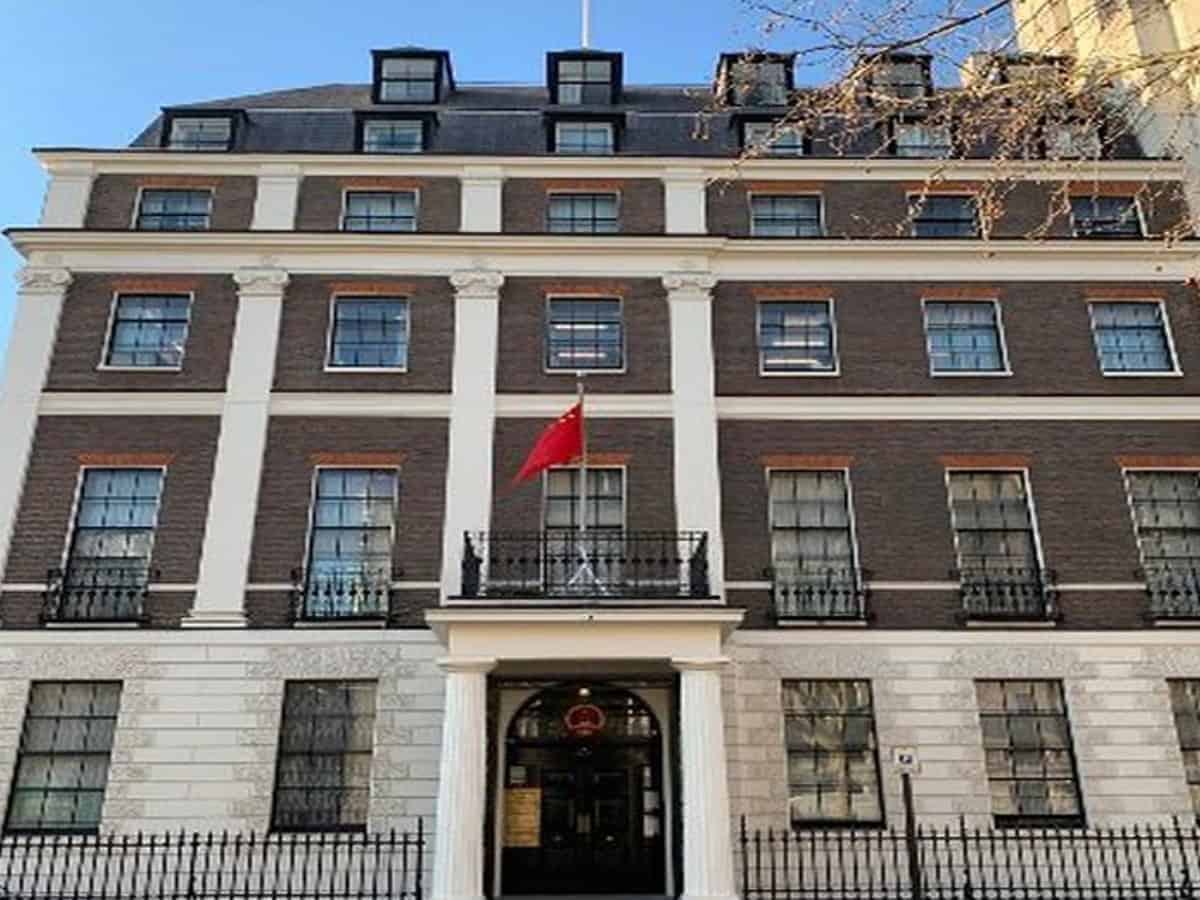London: China’s decision to move its British embassy from London upmarket West end to the less glitzy East did not go well with the locals in the area.
The new mission will be built at the former Royal Mint, just a stone’s throw away from the city’s original 19th century Chinatown.
Just behind the former Royal Mint are the residential streets of Tower Hamlets where four in 10 residents are Muslim, the highest proportion than in any other borough in the United Kingdom.
The residents have said that the embassy isn’t welcome until Beijing stops its alleged mistreatment of Muslims in China.
China is believed to have detained up to two million Uyghurs and other Muslim minorities in internment camps in the far-western region of Xinjiang.
Beijing’s mission is planning to refurbish the building and establish its biggest diplomatic mission in the world at the site, set just back from the River Thames on the outskirts of London’s financial center, CNN News reported.
“I’m very perplexed as to why the People’s Republic of China would want to be on the edges of a neighborhood that is so multi-ethnic, multi-religious. The Muslim community has a large base here,” said Mo Rakib, a Muslim resident who is active in community affairs.
“The Muslim community is very linked with each other, regardless of what part of the world we’re from. There’s always a feeling of affinity from one community to the other based on shared values and faith. And that’s no different for the Uyghur community,” Mo said.
Some local opposition councilors say that they too are concerned about the implications of the embassy’s move and want the issue debated at council meetings. But they don’t outright oppose the mission coming into their neighborhood.
Rabina Khan was one of several local councilors who, at a council meeting Wednesday, tried to introduce an emergency motion, usually reserved for urgent matters, on China.
It was rejected due to time constraints, the mayor’s office told CNN, adding it would discuss the issue at the next meeting in November.
The motion calls on the council to send a letter to Chinese Ambassador Liu Xiaoming expressing its concerns over the country’s treatment of Uyghurs and other Muslims, as well as its clampdown on pro-democracy protesters in Hong Kong.
“What we want is to send a message to China that if they move here, they need to be aware that our borough — in all of its diversity — is a place where we’re very proud to stand up for human rights,” Khan said.
Xinjiang is home to around 10 million Uyghurs. The Turkic Muslim group, which makes up around 45 percent of Xinjiang’s population, has long accused China’s authorities of cultural, religious, and economic discrimination.
About seven percent of the Muslim population in Xinjiang has been incarcerated in an expanding network of “political re-education” camps, according to US officials and UN experts.
Classified documents known as the China Cables, accessed last year by the International Consortium of Investigative Journalists, threw light on how the Chinese government uses technology to control Uighurs worldwide.
China put a million or more Uyghurs and other Muslim minorities into detention camps and prisons in Xinjiang over the last three years under President Xi Jinping’s directives to “show absolutely no mercy in the struggle against terrorism, infiltration, and separatism“, revealed the documents released in US media.
However, China regularly denies such mistreatment and says the camps provide vocational training.
Uyghur activists and human rights groups have countered that many of those held are people with advanced degrees and business owners who are influential in their communities and have no need for any special education.
People in the internment camps have described being subjected to forced political indoctrination, torture, beatings, and denial of food and medicine, and say they have been prohibited from practicing their religion or speaking their language.
Now, as Beijing denies these accounts, it also refuses to allow independent inspections into the regions, at the same time, which further fuels reports related to China’s atrocities on the minority Muslims.

